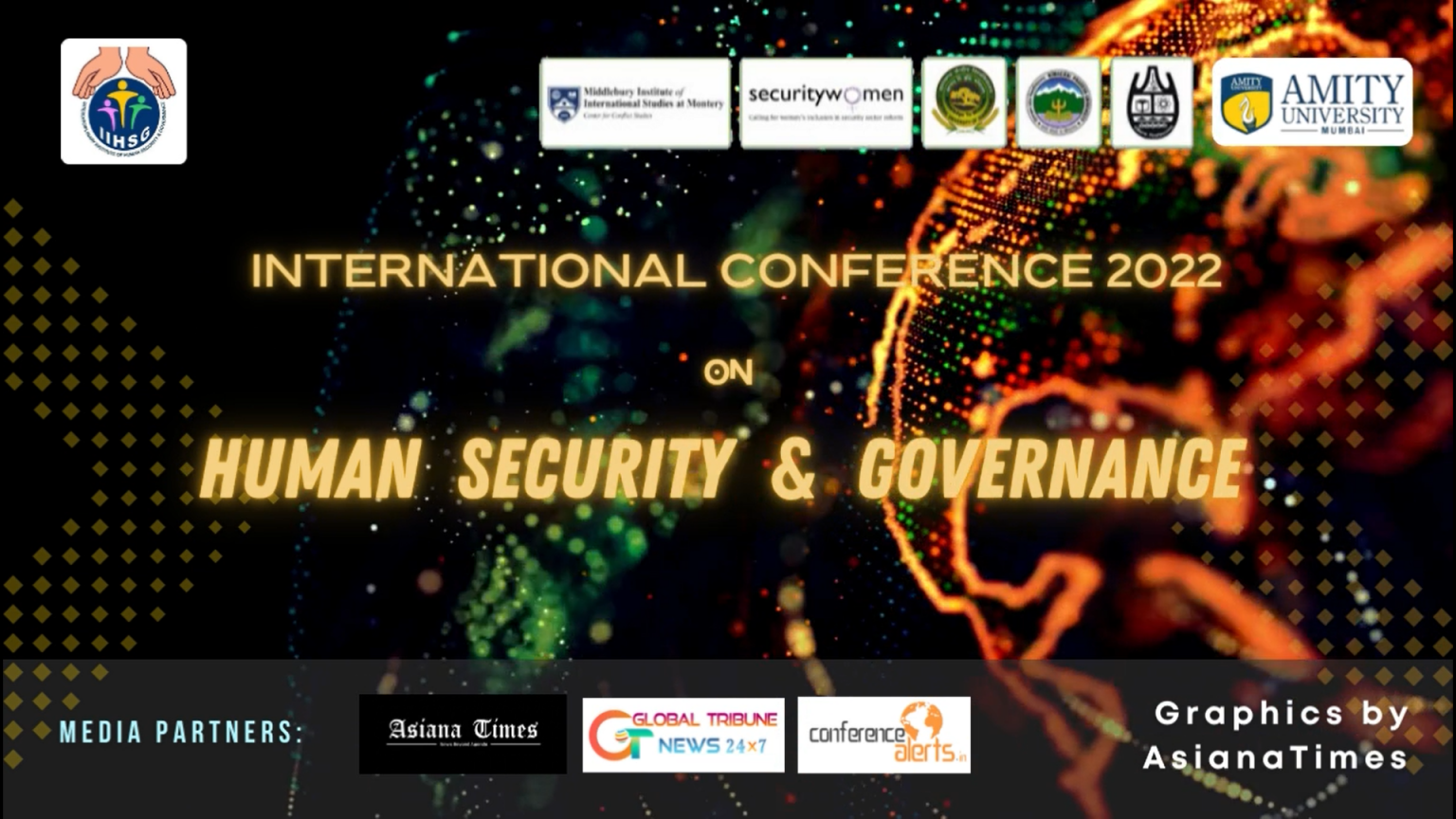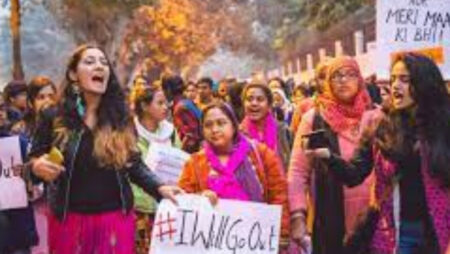Interdisciplinary Institute of Human Security & Governance, Delhi, India in collaboration with Amity Institute of Liberal Arts, Amity University Mumbai; Centre for Conflict Studies, Middlebury Institute of International Studies, Monterey, CA, USA; Security Women, United Kingdom; Department of International Relations; Central University of Jharkhand, India; Department of Defence & Strategic Studies, Himachal Pradesh University, Shimla, India, and Department of International Relations, University of Chittagong, Bangladesh is going to organize a three-day International Conference on Human Security and Governance between 23-25 February 2022 [10.00 am – 8.00 pm IST].
Media partners are Global Tribune, Conference Alerts, and Asiana times.
The 3rd and the last day of IIHSG begin at sharp 10:00 AM with the theme ‘Human Security and Governance: Food Security.” This special session was organized by collaboration with Department of International Relations, University of Chittagong, Bangladesh.
Dr. Sujit Datta, chaiperson of Department of IR, University of Chittagong chaired the session with co-chairs Md. Afzalur Rahman and Md. Faridul Alam, professors at University of Chittagong.
Special speaker Prof. Kamal Uddin started the session with his research paper on ‘Food Security and Governance’. Then, Md. Kamruzzaman Bhuiyan presented his paper on ‘Pandemic X and Food (In)Security in the Global South: Navigating the future’ and Md. Abdul Hannan on ‘The Government’s Role in Tackling food adulteration in Bangladesh: Prospects, possibilities and Challenges.’
Other papers presented in the session were ‘Women: Food Insecurity and Governance’ by Sania Jamal and ‘Impact of Food Security on Human security and sustainable government’ by Arpita Singh.
The dialogue in the session tried to look beyond traditional sense of security by including food security.
Session 2
Session 2 of the day was organized in collaboration with Department of Defence and strategic studies, Himanchal Pradesh University, India. Dr. Harish Thakur, Chairman of Department of Defence and strategic studies, HPU chaired the session.
The co-chairpersons were Dr. Ashok Kumar, Assistant Professor, HPU and Dr. Binesh Bhatia, Assistant professor, HPU. 33 papers were presented in this session on the theme ‘Defence strategy and Human Security.’
The first paper presented was ‘Role of Adult Education in curbing the tradition of witch hunting in Jharkhand’ by Sujoy Kundu. In his paper, Kundu discussed Reasons, consequences and solutions to curb witch hunting.
Sulaiman Bashir from Nigeria presented the second paper which focused on the inability of democracies to ensure security, livelihood and employment with a focus on Nigeria. Then, Dr. Jiji Paul S. Stephenson presented a paper on ‘Mass sponsored militancy destroying the unity of the nation and beauty of Kashmir.’
Subarna Bhattacharya’s paper focused on human security and foreign policy from an Indian perspective. She based her research on the changes in Indian foreign policy post the liquidation of the Soviet Union in 1990 and the creation of the United Nations.
Then, Priyanka Singh presented a paper on ‘Terrorism as a threat to human security’ with a Gandhian perspective; Baruna Kumar Behera on ‘Human security and contributions of Indian space program’.
Cyriac Pampackal’s paper focused on ‘Normalisation of terror and state level sabotage of human security: an analysis of Taliban and Afghanistan’. Pampackal concentrates on political situation post-withdrawal of US troops.
Other papers presented were ‘Cryptocurrency and security issues: Is the rising vogue of cryptocurrency an opportunity for lawbreakers?’ by Maninder Kaur; ‘Border issues: Human Security perspective on the Indo-Nepal border’ by Shailen Verma and ‘State-led anarchy and human security in South Asia’ by Shraddha Rishi.
Subsequently, Dipankar Dey presented his paper on ‘Human Trafficking and Organized Crime in India’; Honey Raj on ‘India’s proliferation in Defence Sector: The dilemma of defence or development’; Ravi Nayak on ‘India’s quest for self- Structure of Indian police: A review’; Deepanjana Majumdar on ‘Rethinking the war on terror and Global anti terror initiatives: The evolution of human security’; Dr. Ruhi Sarangal on ‘Social Media and Human Security’ and Dr. Ravinder Singh on ‘Religion and Human Security.’
Other papers presented were ‘Human Security: crucial component of India’s National security framework’ by John Guite; ‘India’s National security and the Human Security’ by Neeraj S. Manhas; ‘Maoist Insurgency and Human Security in India and Nepal’ by Suvarna Bagul; ‘Security dilemma in Indian Ocean and its implication for India’ by Rohit Thakur; ‘Drone warfare and Human Security’ by Soumyadeep Bidyanta; and ‘Globalisation and Issue of non-traditional threat on India’ by Surender Singh.
Last papers of the session were Ritika Verma’s ‘Impact of COVID-19 pandemic on Human security and education: An empirical study’ and Nikita Singla’s ‘Human security challenges in Punjab during Covid-19′.
Session 3
The theme of session 3 of the day was ‘Human Security and Pandemic’. The panel was chaired by Dr. Sheila Rai, President, Indian Society of Gandhi studies. The co-chair was Dr. Seema Chaudhary, Assistant professor of Sanskrit, Govt. College, Bundi, Rajasthan.
In this session, Shikha Nagori presented her paper on ‘Human Security and Pandemic’; Sarmita Dey on ‘Human Security and the Effect of the pandemic on education’. Anjum Ara’s paper focused on the impact on migrant workers in Jammu and Kashmir.
Manas Kumar Behera presented a paper on migrant workers’ livelihood. He presented a pan-Indian vision of the impact of the pandemic of the pandemic on migrant workers.
Somdatta Banerjee attempted a feminist reading of the covid 19 pandemic with her paper on ‘Gender-related violence in India during the Covid 19 pandemic’ which focused on domestic violence on women during quarantine and lockdown.
Session 4
Co-chair– Bhupinder Singh
The only presenter of this session was Kiran Chauhan who presented a paper on the increasing marital age of marriage for girls and explained how this would be a step towards women empowerment. Chauhan’s focus area was the Indian government’s decision to increase marital age of girl to 21 equal to that of men.
Session 5
Session 5 started with the theme ‘Human Security and law: Child Rights’.
Chairperson– Dr. Surender Singh
The very first speaker, Dr. John Ekeke, presented his paper on ‘Role of Entrepreneurship in Girl Child security’. After him, Biplab Debnath presented his research on ‘Injured Childhood and Analysis of POCSO Act’.
Subsequently, Hima Sreeni SL presented her research on paper ‘Tribals and POCSO Threat in Kerala’. The last paper presented in the conference was ‘Human Security and State: Ancient legal perspective’ by Dr. Mohan Singh Saggu.
The session was brainstorming. It made the virtual audience ponder on child rights.
Valedictory Session of the conference
The valedictory session of the 3rd IIHSG conference was moderated by Dr. Nandini Basistha. Basistha, Executive Director (Honorary), Interdisciplinary Institute of Human Security & Governance & Assistant Professor, Amity Institute of Liberal Arts, Amity University Mumbai, India was the Convenor of the conference.
Dr. Somdatta Banerjee and Dr. Ishita Ray gave the report of the event.
After them, Larysa Martseniuk, a Ukraine based professor, shared her horrific experience of ongoing Russain Invasion in Ukraine. She explained that Ukraine does not want war and that many Ukrainians have relatives based in Russia.
Guest panelist, Dr. Juliet Coleman, Director of Security Women delivered the valedictory speech.
She pointed out that all the issues concerning good governance, impact of covid 19, impact of climate change, terrorism as a security threat were interconnected themes that had human rights as its building block. She further focused on the surge in domestic violence on women during the Covid 19 pandemic.
Then, Tiina Seppala, guest panelist and author of the book ‘Globalising Resistance against war’ spoke of how the traditional conceptions of security are male-dominated and Euro-centric.
She talked of the importance of having positive peace over negative peace which she defined as peace without social justice for every section of the society.
The Presidential address was delivered by Rajagopal Dhar Chakraborti of the University of Calcutta. He focused on the covid 19 and human security in South Asia.
He pointed out that good governance resulted in lower fatality rates in South Asia during the Covid 19 pandemic than those of quite a few developed countries.
The final guest panelist was Alok Kumar Gupta whose focus area was children’s rights and governance in India. He pointed out how the global community spends more on military expenditure than on children’s education and security. He believes that India is a soft state when it comes to implementation of policies concerning the ban on child labour.
Dr. Nandini, the convenor concluded the three-day conference with a final vote of thanks.
~ By Shreya Pandey and Atreyee Chakraborty












